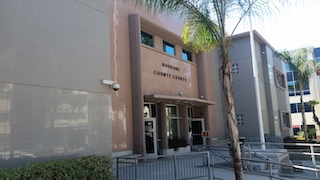It seems that negative publicity about a defendant in a pending case can certainly “try and convict” that defendant before the matter even begins trial. This is obviously a huge concern to anyone facing pending charges, but what can one really do about it?
After all, the Sixth Amendment and the California Constitution, Article 1, section 15, guarantee the right to the accused in a criminal case to have a public trial (which can make the judge and prosecutor more careful it is thought). On the other hand, the First Amendment and the California Constitution, Article 1, Section 2, protect the freedom of the press. These two fundamental rights can seem to create a perfect storm to undermine defendant’s right to a fair trial before an unbiased jury.
After all, during jury selection, well-informed, prospective jurors may be interested in serving on the jury in a well-publicized case, but deny this to be selected for the jury.
To try to balance the coverage, defense counsel may issue a carefully-worded press release that complies with California Rules of Professional Conduct, Rule 5-120A, which prohibits statements that have a “substantial likelihood of materially prejudicing the case.”
 Burbank Courthouse
Burbank Courthouse
In addition, counsel should consider the following nine additional options, in order to protect the defendant’s Fifth Amendment right to due process in the form of a fair trial:
- Motion for Change of Venue. This type of motion should be brought very early in the case. The later it is brought, the less likely it is to be granted. Such a motion should be supported with studies showing why the original venue would lead to an unfair trial. Penal Code §§ 1033 – 1038 discuss this possibility, as well as California Rules of Court, Rules 4.150 to 4.155; see also Maine v. Superior Court (1968) 68 Cal.2d 375, 383, 66 Cal.Rptr. 724.
- Motion for a Closed Preliminary Hearing. This motion is rarely filed, however, the grounds for it are discussed in Penal Code § 868. See Waller v. Georgia (1984) 467 U.S. 39, 81 L.Ed. 2d 31, 104 S. Ct. 2210.
- Motion for a Closed Trial. This is a rarely granted motion, but can be granted under exceptional circumstances. See People v. Tugwell (1917) 32 Cal.App.520, 525, 163 P. 508.
- Motion for an Order Forbidding All Parties and Witnesses from Discussing the Case with the Press. This type of motion is not uncommon. See Press Enterprise v. Superior Court (1994) 22 Cal.App.4th 498, 27 Cal.Rptr.2d 708
- Motion for an Order Forbidding the News Media from Reporting Information about the Case. This type of motion is reserved for only the most sensational cases. See Younger v. Smith (1973) 30 Cal.App.3d 138, 106 Cal.Rptr. 225.
- Motion for an Order Sealing the Grand Jury Transcript. This would prevent the press from publicizing testimony that may be taken out of context. See Press Enterprise v. Superior Court (1994) 22 Cal.App.4th 498, 27 Cal.Rptr.2d 708.
- Motion for an Order Sealing the Preliminary Hearing Transcript. This would prevent the press from repeating portions of the preliminary hearing transcript out of context or in an incomplete, misleading manner. See Press Enterprise v. Superior Court (1994) 22 Cal.App.4th 498, 27 Cal.Rptr.2d 708; see Cal. Rules of Court 2.550
- Motion to Seal a Warrant or Warrants and certain pleadings. This has very limited application. See People v. Hobbs (1994) 7 Cal.4th 948, 30 Cal.Rptr.2d 651 (prosecution seeking sealing of a warrant); Oziel v. Superior Court (1990) 223 Cal.App.3d 1284, 1295 273 Cal.Rptr. 196 (psychotherapist’s motion concerning video of search of his office).
- Motion to Sequester the Jury. This is relatively common. The authority for such a motion is Penal Code § 1121. See also People v. Ayers (1975) 51 Cal.App.3d 370, 124 Cal.Rptr. 283.
For more information about trial issues, please click on the following articles:
- I Want to Change the Courthouse (Venue) for My Case. Can I?
- Should I Waive a Jury Trial and Instead Have a Bench Trial?
- What Advantage Is There to Waiving a Preliminary Hearing?
Contact us.  Burbank Courthouse
Burbank Courthouse